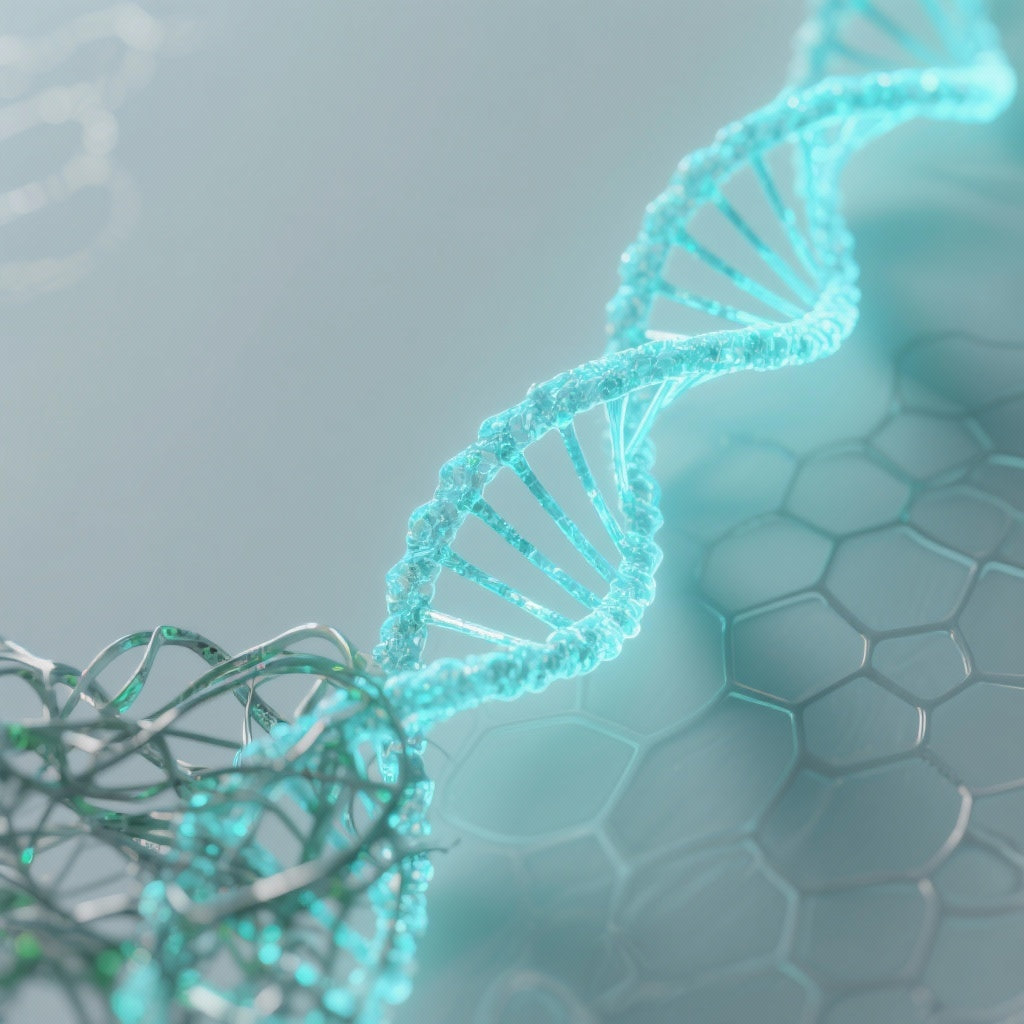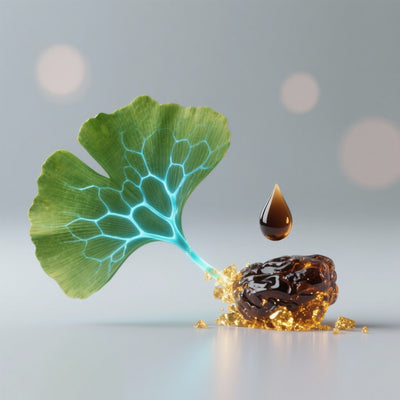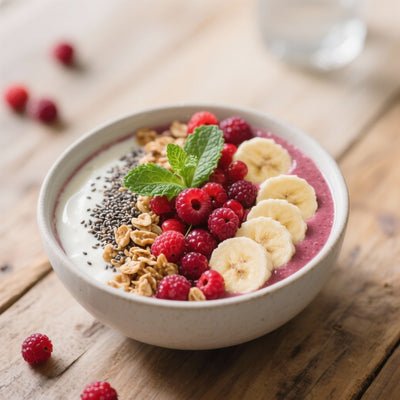What is biological aging and how can it be slowed down naturally?
What if your real age wasn't the one on your passport? This idea, once relegated to science fiction, is now at the heart of longevity research. We all age, but we don't all age at the same rate. This is the fundamental distinction between our chronological age —the number of candles on your cake—and our biological age , which reflects the true health of our cells and tissues. Understanding this difference is the first step toward regaining control of our health and potentially slowing down time.
Biological aging is a complex process, influenced by a myriad of factors ranging from our genetics and environment to our lifestyle choices. The good news? A significant part of this process is in our hands. In this article, we'll unpack the science of aging, identify the factors that accelerate it, and, most importantly, explore natural and scientifically sound strategies to slow down your internal clock.
Understanding Biological Aging: More Than a Matter of Years
To act effectively, we must first understand. The concept of biological age is not a mere metaphor; it is based on concrete physiological markers that indicate the rate at which our bodies decline. It is a far more accurate measure of our longevity and our "healthy lifespan" (healthspan) than our date of birth.
Chronological Age vs. Biological Age: The Crucial Distinction
Imagine two 50-year-olds. One is energetic, pain-free, and has radiant skin. The other is constantly tired, suffers from numerous ailments, and looks ten years older. Although they share the same chronological age, their biological age is radically different. Chronological age is an unchanging constant, while biological age is a dynamic, malleable state. It's a moving target we can aim for and improve.
Markers of Aging: How do we measure our "True" Age?
The science of longevity has identified several key biomarkers for assessing biological age. Here are the most important:
- Telomere length: These are the protective caps at the ends of our chromosomes. They shorten with each cell division. Shorter telomeres are associated with accelerated aging and disease.
- The epigenetic clock (DNA methylation): Epigenetics concerns modifications that activate or deactivate genes without changing the DNA sequence itself. DNA methylation patterns change predictably with age, forming a very precise "clock" of our biological aging.
- Mitochondrial dysfunction: Our mitochondria are the powerhouses of our cells. With age, their efficiency decreases, leading to a drop in energy and an increase in oxidative stress.
The 4 Pillars of Accelerated Aging
Several fundamental processes are responsible for accelerating our biological clock. By understanding them, we can target our efforts to counteract them.
Chronic Inflammation: The Silent Fire
Acute inflammation is a healthy response to injury. But chronic, low-grade inflammation, often caused by poor diet, stress, or lack of sleep, is a major driver of aging. This "silent fire" constantly damages our cells and is implicated in nearly every age-related disease.
"Studies show that high levels of inflammatory markers, such as C-reactive protein (CRP), are strongly correlated with an increase in biological age and an increased risk of mortality."
Oxidative Stress: When Our Cells Rust
Oxidative stress occurs when there is an imbalance between free radicals (unstable molecules that damage cells) and antioxidants (which neutralize them). This process is comparable to rust on metal. It attacks our cells, our DNA, and our proteins, accelerating functional decline.
Glycation: The "Caramel" Effect on Our Tissues
When excess sugar in our blood binds to proteins, it forms harmful compounds called advanced glycation end products (AGEs). This process, similar to caramelization, makes our tissues (such as skin and arteries) stiff and dysfunctional. This is one of the reasons why a diet high in sugar visibly ages us.
5 Natural Strategies to Slow Down Your Biological Clock
Fortunately, our biological age is not predetermined. Through targeted and consistent actions, we can positively influence the markers of aging.
-
Anti-Aging Nutrition: Nourishing Your Cells
Your diet is your most powerful tool. Focus on nutrient-rich foods that fight inflammation and oxidative stress:
- Polyphenols: Found in berries, green tea, dark chocolate, and colorful vegetables.
- Omega-3s: Found in oily fish, flax and chia seeds, they are powerful anti-inflammatories.
- Fiber: It nourishes a healthy microbiota, which plays a crucial role in regulating inflammation.
For concrete ideas, explore our recipes designed for vitality and longevity .
-
Movement: A Cellular Necessity
Physical exercise does more than just strengthen muscles; it acts at the cellular level. A combination of endurance and resistance training has been shown to lengthen telomeres and improve mitochondrial function. High-intensity interval training (HIIT) is particularly effective at stimulating mitochondrial biogenesis.
-
Restorative Sleep: The Nighttime Detox
It is during deep sleep that our body performs its most important repair tasks. It clears metabolic waste from the brain, repairs damaged tissues, and consolidates memory. Poor quality or insufficient sleep deprives your body of this essential rejuvenation process and accelerates aging.
-
Stress Management: Calming the Mind to Protect the Body
Chronic stress, via the hormone cortisol, is a major accelerator of aging. It shortens telomeres and promotes inflammation. Practices such as meditation, yoga, mindfulness, or simply spending time in nature can significantly reduce cortisol levels. Adopting a more serene lifestyle is a direct investment in your longevity.
-
Intermittent Fasting and Autophagy: The Great Cleanse
Intermittent fasting, which involves alternating periods of eating and fasting, activates a cellular cleansing process called autophagy . During autophagy, cells break down and recycle their old or damaged components. This is a powerful rejuvenation mechanism that can improve metabolic health and slow down aging.
FAQ: Your Questions about Biological Aging
Is it really possible to reverse one's biological age?
Although the term "reverse" is strong, numerous studies, including a landmark 2019 study (the TRIIM trial), have shown that targeted lifestyle and nutrition interventions can reduce biological age as measured by epigenetic clocks. More precisely, this is referred to as slowing down or biological rejuvenation .
At what age should I start worrying about it?
The sooner the better. The habits you develop in your twenties and thirties lay the foundation for your future health. However, it's never too late to start. Positive changes can have a significant impact at any age.
Are there tests to determine one's biological age?
Yes, several companies now offer at-home testing kits based on DNA methylation analysis (via a saliva or blood sample). While not perfect, they can provide a useful indication and allow you to track progress following lifestyle changes.











